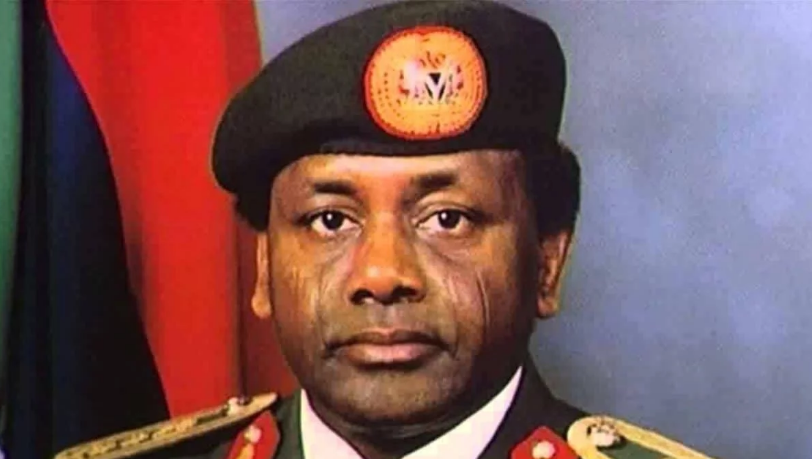- Abacha’s regime was dogged by grand larceny, widespread corruption, brutal repression and human rights abuse
A retired Colonel of the Nigerian Army, Babatunde Bello-Fadile, has shed more light on the circumstances surrounding the seizure of power by the late General Sani Abacha in a coup in 1993.
Fadile revealed that Abacha was able to oust the interim government of late Ernest Sonekan because his resumption as the Aide-De-Camp, ADC, to the interim president was unusually stalled.
Fadile made the revelation on the Friday edition of Inside Sources with Laolu Akande, a socio-political programme on Channels Television.
He said Abacha would not have taken over if he resumed as Shonekan’s ADC.
“I was posted to Sonekan. I don’t know why I was not allowed to resume. Still, if I had been ADC, it (the takeover) probably wouldn’t have happened. Why didn’t I resume? The Chief of Army Staff said I should wait until he (Sonekan) comes back from Malta where he went for the Commonwealth Head of State meeting that year. So, I was hanging around. The whole thing happened by the time he came back,” he said.
Abacha overthrew the the interim government of Shonekan in 1993 following the controversial annulment of the presidential election whose winner was adjudged to be the late MKO Abiola by General Ibrahim Babangida, IBB, took over power in 1985.
Following the nationwide social upheaval, unrest and violence that characterised the aftermath of annulment, IBB, who took over power through a coup against General Muhammadu Buhari, resigned and formed an interim government with Shonekan as president and Abacha as Chief of Defence Staff and Minister of Defence.
On November 18, 1993, three months into his administration, Abacha overthrew Shonekan in a palace coup.
Over 30 years later, Bello-Fadile said the circumstances behind Shonekan’s resignation were abnormal
Abacha’s regime was dogged by grand larceny, widespread corruption, brutal repression and human rights abuse.
